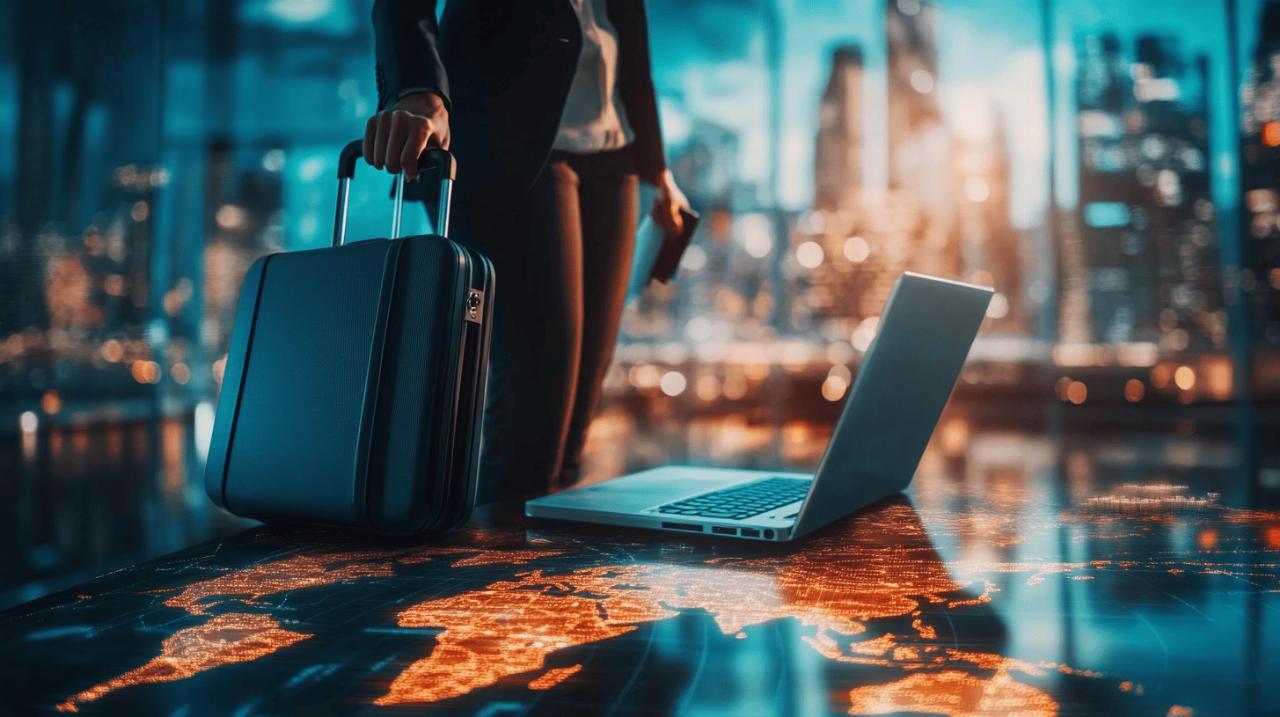Embarking on a journey requires thoughtful planning and preparation to maximize enjoyment and minimize stress. Proper travel preparation encompasses researching destinations, making timely reservations, packing appropriately, and ensuring all necessary documents are in order. When you take time to prepare thoroughly, you set yourself up for a smoother travel experience.
Planning your journey
Successful trip planning begins well before your departure date. Whether you’re a digital nomad seeking long-term travel opportunities or planning a short vacation, preparation is key to ensuring your adventure goes smoothly. From visa requirements to accommodation bookings, each aspect requires careful consideration.
Researching your destination
Knowledge about your destination enhances your travel experience significantly. Start by learning about local customs, weather patterns, and must-see attractions. For solo travel, understanding safety conditions is particularly important. Create a list of places you want to visit and activities you want to experience. Many travel tips from experienced travelers emphasize the value of waking up early to observe daily life and immersing yourself in the local culture. You can find comprehensive destination guides on preparatuviaje.es that provide valuable insights about various locations around the world.
Making early reservations
Securing your flight booking and accommodation well in advance often leads to better rates and ensures availability, especially during peak travel seasons. Consider your budget travel goals when making reservations – sometimes cheaper options become available when booked earlier. For long-term travel, research flexible cancellation policies that might be necessary if your plans change. When booking accommodations, consider factors like proximity to transportation, storage solutions for your belongings, and access to visit preparatuviaje.es for detailed comparisons of accommodation options in various destinations.
Packing strategies
Embarking on a journey as a digital nomad or long-term traveler requires thoughtful preparation, especially when it comes to packing. Based on experiences from travelers who have visited over 70 countries, smart packing can make your trip more enjoyable and stress-free. Creating a strategic approach to what you bring and how you organize it becomes essential for successful travel preparation.
Creating an effective packing list
The foundation of efficient travel preparation starts with a well-organized packing list. Experienced travelers recommend packing light—bring only what you absolutely need rather than what you think you might need. Essential items for any trip include a microfiber towel from brands like Nomadix, which dries quickly and takes minimal space. Compression packing cubes from Gonex can revolutionize your storage solutions by maximizing luggage space while keeping belongings organized.
Safety items deserve priority on your list. Consider a money belt or bra stash from trusted brands like EagleCreek or Go Travel to protect your valuables. For long-term travel or trips to remote locations, include a Grayl Geopress water purification bottle to ensure safe drinking water anywhere. Digital nomads should prepare their tech essentials carefully, including backup payment methods like a Revolut prepaid travel card for good exchange rates and convenient card freezing capabilities if needed during your trip.
Adapting to various weather conditions
Versatility becomes crucial when preparing for changing climates during your journey. Research seasonal patterns at your destinations to pack appropriate clothing. A multifunctional scarf or sarong ranks among top packing essentials as it can serve as a beach cover, picnic blanket, makeshift bag, or extra warmth in unexpected cold weather.
When planning for multiple climate zones, layering remains the most practical approach. Lightweight, quick-drying fabrics work best for most travel situations. For flight comfort regardless of cabin temperature, bring earplugs, an eye mask, and a travel pillow to improve your journey. During trip planning, consider the activities you’ll participate in at each location—hiking in mountains requires different gear than beach relaxation. This strategic thinking helps minimize what you pack while still being prepared for all weather scenarios you might encounter throughout your travels.
Prioritizing health considerations
Planning for travel involves careful attention to health considerations, especially for long-term travelers and digital nomads. When preparing for your journey, addressing medical needs and securing appropriate insurance should be at the top of your list. These precautions ensure you can fully enjoy your trip planning experience without worrying about health emergencies.
Necessary medical preparations
Before embarking on your adventure, consult with a healthcare provider about necessary vaccinations based on your destination. Research shows travelers to regions like Central America, South America, and Asia may need specific immunizations such as tetanus-diphtheria, yellow fever, hepatitis A, and typhoid. Stock up on both prescription medications and essential over-the-counter remedies including painkillers, antiseptic spray, electrolyte tablets, anti-diarrhea pills, and if needed, malaria medication. For extended trips, calculate your medication needs carefully or research reliable pharmacies at your destinations. Water safety is crucial during travel, so consider packing a water purification system like the Grayl Geopress bottle to ensure access to clean drinking water regardless of your location. Digital nomads and those engaging in cultural immersion should also research local health risks specific to their destinations and take appropriate preventive measures.
Securing appropriate travel insurance
Travel insurance is an indispensable part of trip preparation, particularly for budget-conscious travelers who might face significant financial strain from unexpected medical expenses abroad. Purchase comprehensive travel insurance that covers medical emergencies, trip delays, and lost luggage. SafetyWing insurance is particularly well-suited for digital nomads and long-term travelers, offering continuous coverage during extended journeys. When selecting a policy, verify coverage for specific activities you plan to undertake, especially if they include adventure sports or other high-risk pursuits. Many solo travelers find peace of mind in knowing their medical needs will be covered without depleting their travel funds. Beyond basic coverage, check if your insurance includes emergency evacuation services, which can be life-saving in remote locations. Make digital copies of your insurance documents and store them in cloud storage for easy access, while keeping policy numbers and emergency contact information readily available at all times. Smart travelers recognize that proper insurance isn’t just an expense—it’s a fundamental component of responsible travel preparation.
Managing documents and money
Preparing your documents and finances is a crucial aspect of travel preparation, especially for long-term travel or digital nomad lifestyles. When setting off on your journey, having organized paperwork and secure access to your money can save you from numerous headaches while abroad.
Proper management of your travel documentation and finances builds a foundation for smooth travels. This preparation allows you to focus on enjoying your destination rather than dealing with preventable problems.
Organizing essential paperwork
Start by ensuring your passport is valid for at least six months beyond your planned return date, as many countries enforce this requirement for entry. Check visa requirements for each destination on your itinerary well in advance, as application processes vary in complexity and processing time.
Create both digital and physical copies of your important documents. Store digital versions in secure cloud storage that you can access from anywhere, and keep physical copies separate from the originals. Key documents to duplicate include:
– Passport main page
– Visa pages
– Travel insurance policy
– Driver’s license
– Credit card information
– Emergency contacts
For those planning long-term travel, consider how to handle mail and official communications. Setting up digital statements for bills and financial accounts simplifies management while abroad. Trip planning should include researching proof of onward travel requirements, as immigration officials in certain countries may request this information.
Setting up financial access abroad
Financial preparation is vital for stress-free travel. Notify your bank and credit card companies about your travel plans to prevent them from flagging foreign transactions as suspicious and freezing your accounts. Carry multiple payment methods – a mix of cash, credit cards, and debit cards provides security and flexibility.
A prepaid travel card like Revolut offers excellent exchange rates and security features such as easy card freezing if lost. With such cards, you might withdraw up to a certain amount monthly without incurring fees, making budget travel more feasible.
Research local ATM availability and banking hours at your destinations. In some locations, ATMs may be scarce or unreliable, necessitating alternative plans for accessing funds. Consider establishing online banking access before departure to monitor accounts and transfer funds as needed.
For digital nomads and those on extended journeys, investigate international banking options that minimize foreign transaction fees. Some travelers maintain accounts in different currencies to hedge against exchange rate fluctuations during long-term travel.
Smart money management while traveling includes separating funds into different locations – some in your day bag, some in your accommodation safe, and perhaps some in a concealed money belt for emergencies. This approach to storage solutions protects you from losing everything in case of theft or loss.
Staying connected while abroad
 When embarking on a journey as a digital nomad or for long-term travel, maintaining communication with loved ones and accessing essential information becomes vital. Modern technology offers numerous solutions to stay connected regardless of your destination. Planning your connectivity strategy before departure can save you from unexpected challenges during your trip.
When embarking on a journey as a digital nomad or for long-term travel, maintaining communication with loved ones and accessing essential information becomes vital. Modern technology offers numerous solutions to stay connected regardless of your destination. Planning your connectivity strategy before departure can save you from unexpected challenges during your trip.
Many seasoned travelers recommend researching local SIM cards as they typically provide more affordable data rates than international roaming plans. Budget travel often means making smart choices about communication expenses, which represent a significant portion of travel costs for digital nomads.
Communication options for travelers
The world of international communication presents various options for travelers seeking to maintain contact while abroad. Local SIM cards remain a popular choice among long-term travelers, offering substantial savings compared to international roaming fees. Before purchasing, research network coverage in your specific destinations to ensure reliable service.
Portable WiFi devices serve as excellent alternatives for those needing consistent connectivity, especially digital nomads requiring stable internet for work. These pocket-sized devices create personal hotspots anywhere with cellular coverage, though they come with rental fees and data limits.
For those prioritizing budget travel, free WiFi at accommodations, cafes, and public spaces provides a cost-effective solution. Many hostels, hotels, and vacation rentals now feature WiFi as a standard amenity. When selecting accommodation, verify internet speeds if connectivity ranks high among your travel needs.
Messaging apps like WhatsApp, Signal, and Telegram function well even on slower connections, enabling communication without incurring SMS charges. Voice over Internet Protocol (VoIP) services offer another economical method for international calls when WiFi is available.
Travel apps worth downloading
The right selection of travel apps can transform your journey by providing valuable information and services at your fingertips. Offline map applications like Maps.me or Google Maps offline mode prove invaluable when navigating unfamiliar streets without data connectivity. These tools allow you to download city or country maps before arrival, enabling GPS tracking without internet access.
Language translation apps break down communication barriers during cultural immersion experiences. Google Translate offers offline language packs for numerous languages, while specialized apps like iTranslate facilitate real-time conversations with locals.
Trip planning becomes more manageable with apps like TripIt, which organizes all your reservations in one place. Weather apps help you prepare for daily conditions, while currency converters assist with budget travel decisions by quickly calculating exchange rates.
Safety remains paramount during solo travel, making emergency service locator apps essential. Some applications can identify nearby medical facilities or embassies, while others share your location with trusted contacts.
For digital nomads, productivity apps maintain work efficiency regardless of location. Cloud storage services ensure access to important travel documentation whenever needed, while VPN applications protect your data when using public WiFi networks.
Understanding cultural differences
When embarking on a long-term travel journey or working as a digital nomad, your experience will be greatly enhanced by taking time to understand the cultural differences of your destination. This crucial aspect of trip planning goes beyond booking flights and accommodations – it involves developing cultural awareness that can make or break your travel experience. Research shows that travelers who invest time learning about local customs before departure typically enjoy more meaningful cultural immersion and face fewer challenges during their stay.
Many budget travel enthusiasts focus primarily on finding affordable accommodation and transportation options while overlooking the importance of cultural preparation. For successful travel preparation, consider researching cultural norms alongside visa requirements and safety tips. This preparation becomes even more vital for solo travel, as navigating unfamiliar customs without a companion requires greater awareness and adaptability.
Respecting local customs
Respecting local customs starts with research before your trip. Take time during your trip planning phase to learn basic etiquette rules for each destination. This might include appropriate dress codes for religious sites, dining etiquette, greeting customs, and photography restrictions. When packing essentials, include items that help you adapt to local expectations – perhaps a scarf for covering shoulders in conservative regions or modest clothing options.
Cultural respect extends to learning a few basic phrases in the local language. This simple effort demonstrates goodwill and often leads to warmer welcomes from locals. Digital nomads staying in one location for extended periods benefit tremendously from deeper cultural understanding, as it facilitates better integration into local communities. Many experienced travelers recommend keeping a flexible schedule that allows for participation in local festivals or traditions, creating opportunities for authentic cultural immersion while maintaining safety.
Avoiding cultural misunderstandings
Cultural misunderstandings can arise from seemingly innocent actions that carry different meanings across cultures. Before departure, research specific behaviors to avoid in your destination. This might include hand gestures considered offensive, photographing certain people or places without permission, or breaking unwritten social rules. Proper travel documentation isn’t just about passports and visas – it can include understanding local regulations that might differ from your home country.
Digital nomads working across cultural boundaries must be particularly sensitive to business etiquette variations. This awareness becomes part of essential travel preparation alongside securing travel insurance and arranging accommodation. When facing uncertainty about cultural norms, observation before participation is a valuable strategy. Watch how locals interact, note physical distance maintained during conversations, and adapt accordingly. For long-term travel success, maintain an attitude of cultural humility – recognize that different doesn’t mean wrong, just different. This mindset, combined with practical packing essentials and proper vaccination preparation, creates the foundation for meaningful travel experiences across cultural boundaries.







